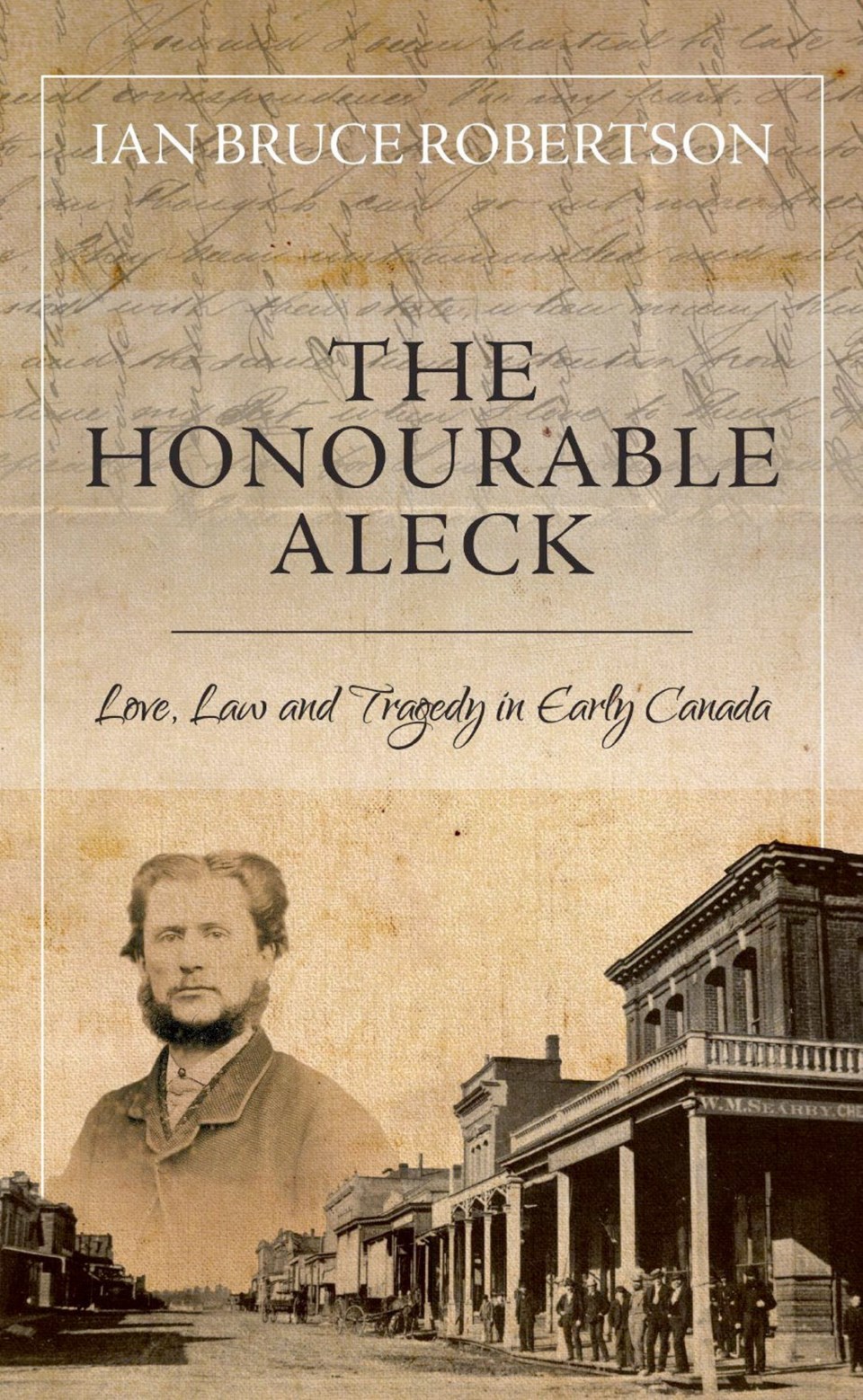The Honourable Aleck: Love, Law and Tragedy in Early Canada
Ian Bruce Robertson
Friesenpress, 320 pp., $19.99
When Alexander Rocke Robertson died on Dec. 1, 1881, all of British Columbia mourned. “By his death the province has lost one of its foremost and most useful public men, that too at the early age of 40 years,” the Daily Colonist reported the next day.
Robertson packed many accomplishments into his short life. After starting work as a lawyer in the colonies of British Columbia and Vancouver Island in 1864, he served as mayor of Victoria in 1870, as a member of the first provincial cabinet, and in 1880 became the first Canadian-born Supreme Court judge in the new province.
The Honourable Aleck, written by a family member, gives us a close look into the Robertson family as well as into the early days of British Columbia. Family letters, documents and diaries served as a primary source for the information, allowing author Ian Bruce Robertson to gain a sense of what Aleck and his wife Maggie were thinking and saying.
The result is a biography that is more personal, and much warmer, than many other works.
Alexander Rocke Robertson was born and raised in Chatham, Ont., and came to Victoria in 1864 via Panama. He was not allowed to practise law here, though; colonial regulations specified that only British-trained lawyers were allowed, and Robertson had obtained his education and early experience in Upper Canada.
He worked for a few months as editor of the Victoria Chronicle newspaper, which later merged with the Colonist, making it a forerunner of the Times Colonist.
But in his heart, he was a lawyer rather than a journalist, so he went to New Westminster, where he was accepted as a member of the bar in British Columbia.
The next year, legislation on Vancouver Island was changed, allowing Robertson to serve in the Island colony as well.
He worked directly with many key figures in British Columbia’s early history, including Judge Matthew Baillie Begbie as well as our first three premiers: John Foster McCreight, Amor De Cosmos and George Anthony Walkem.
He witnessed the merger of the two colonies in 1866, the creation of Canada in 1867, and the admission of British Columbia as a province of Canada in 1871.
In 1868 he returned to Chatham to marry his cousin, Margaret Bruce Eberts, known affectionately as Maggie. They had seven sons.
The Robertsons were high achievers. Several members of the family have become lawyers and judges. (The book’s author was a lawyer before retiring to Vancouver Island.)
A couple of family tree charts would have helped The Honourable Aleck, since the success of his descendants is a reflection of the dedication and determination of Aleck and Maggie. It’s part of the story, and should be covered here.
Maps would also help. One showing the location of the Robertson residence on a two-acre lot at Vancouver and Johnson streets would have given the reader a better sense of downtown Victoria at the time.
Robertson’s death came a few weeks after he injured his leg while swimming in Kamloops Lake.
There was little concern at first, but the gash he suffered when he struck a submerged tree did not heal. The injury forced him to return to Victoria and seek the best medical attention the province could offer.
Unfortunately, nothing could be done — and even today, it is not clear why a cut on his knee would have been fatal.
Author Ian Bruce Robertson will speak about Alexander Rocke Robertson at the next meeting of the Victoria Historical Society. The meeting starts at 7:30 p.m. on Thursday, April 24, at the James Bay New Horizons Centre, 234 Menzies St.
The reviewer, the editor-in-chief of the Times Colonist, is the author of The Library Book: A History of Service to British Columbia.



